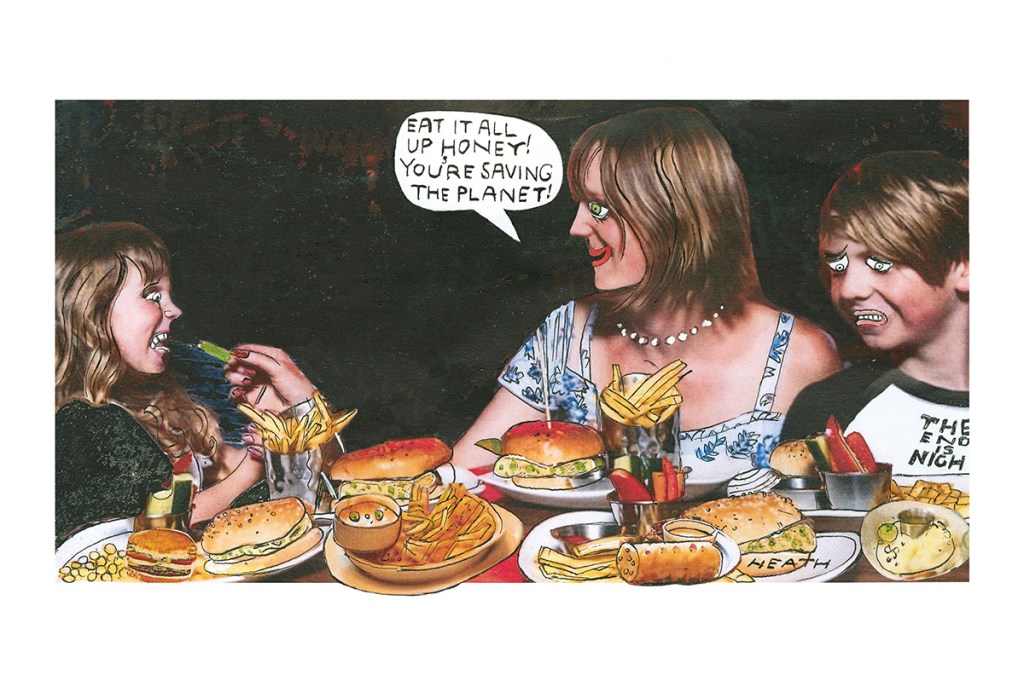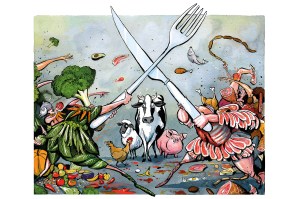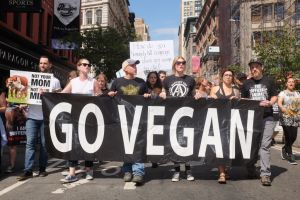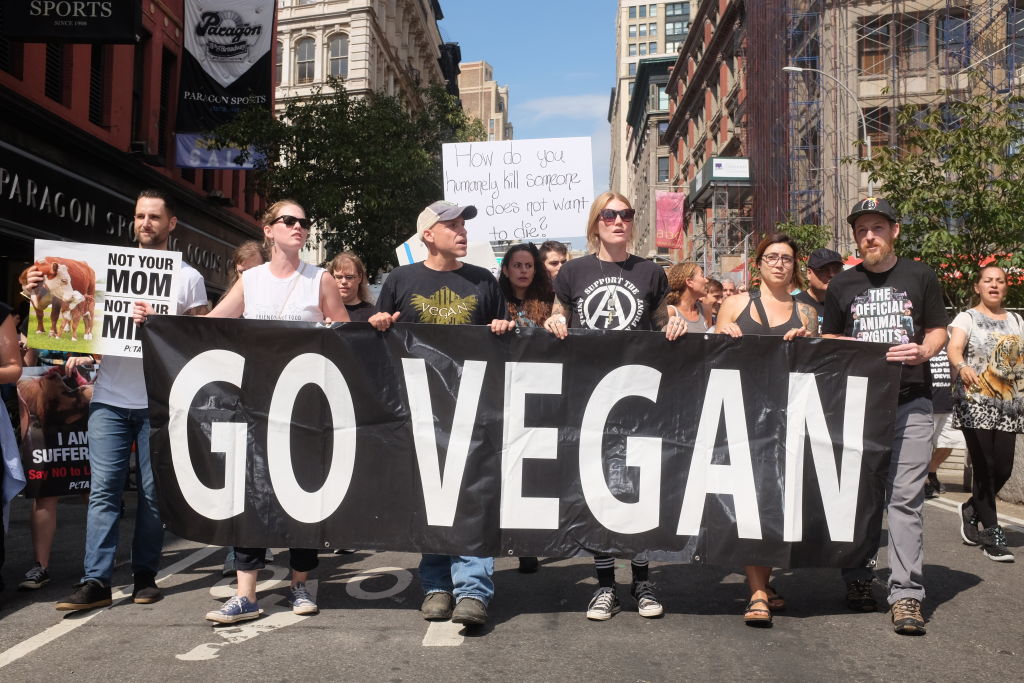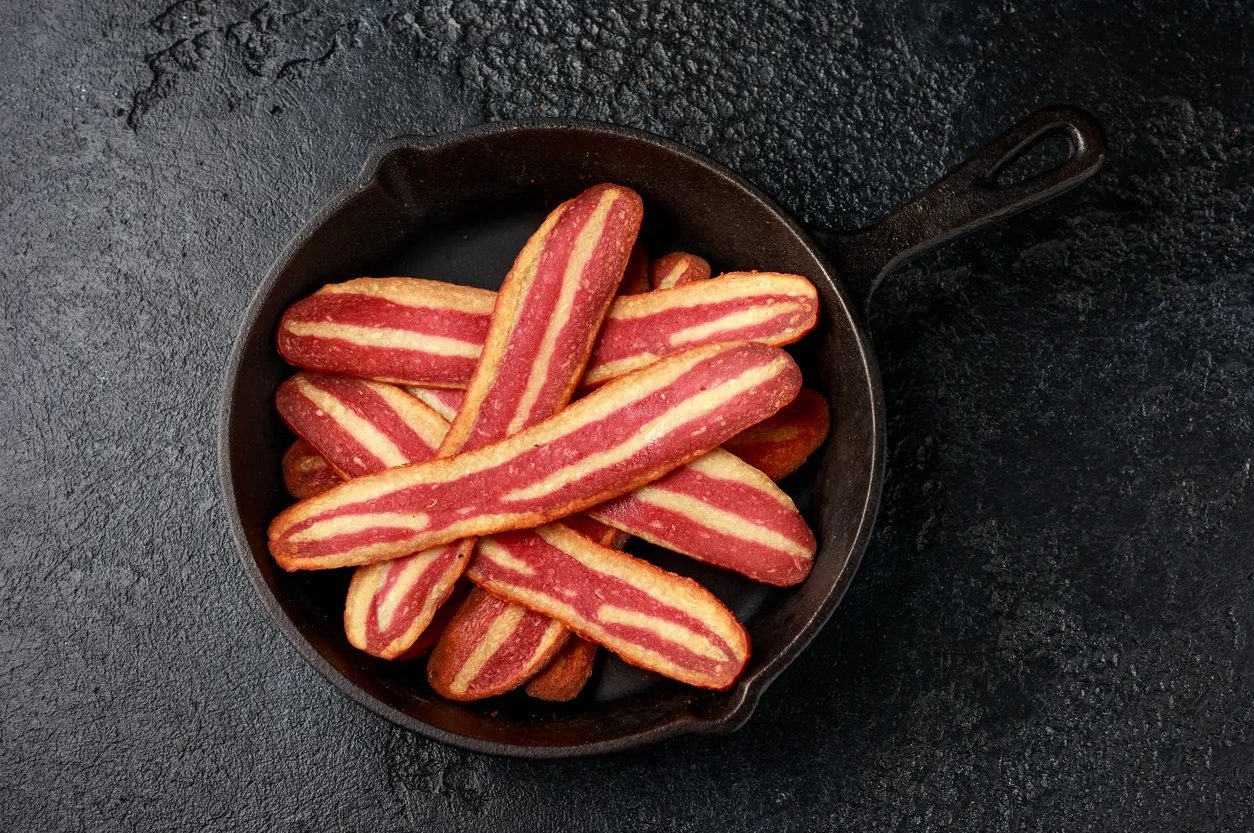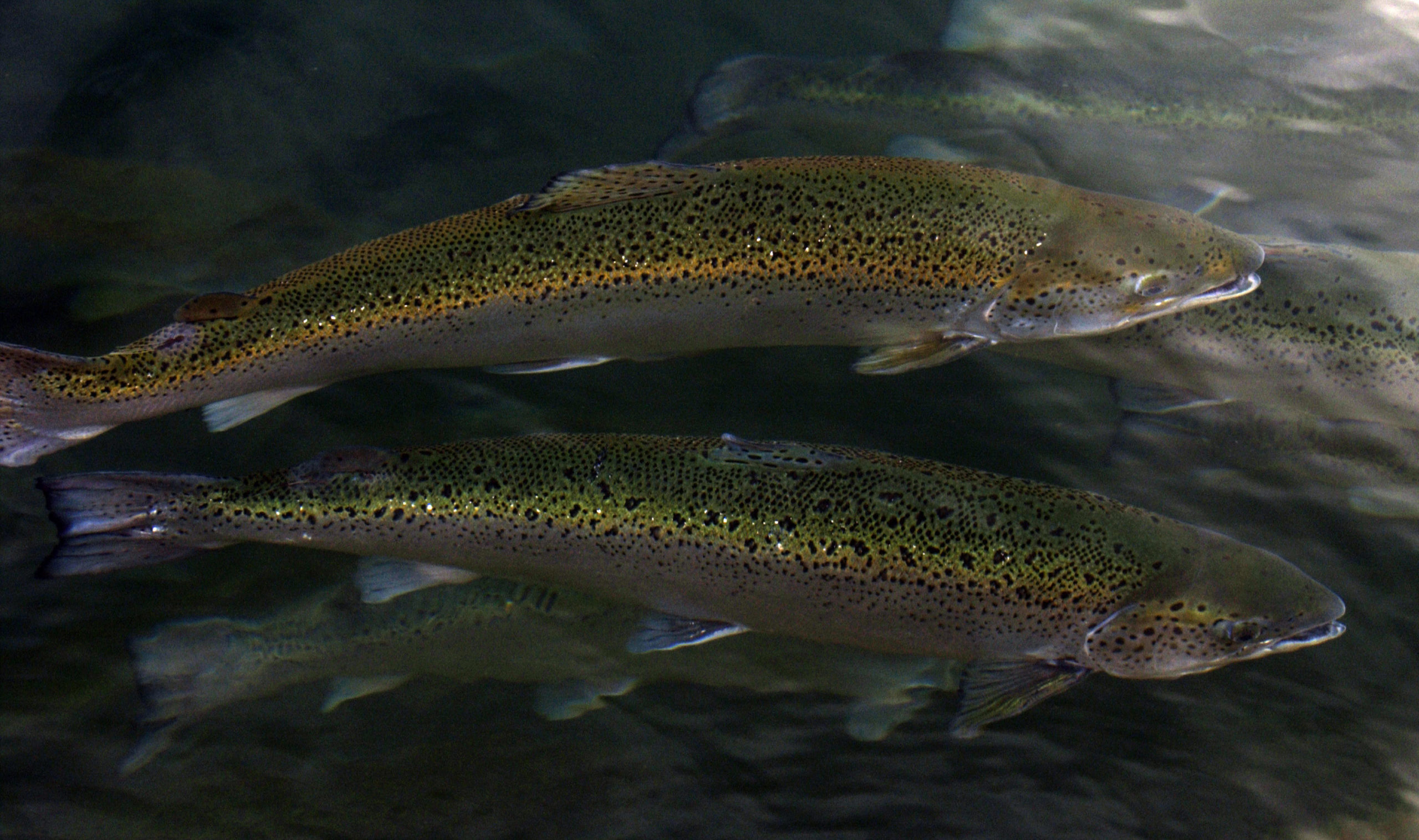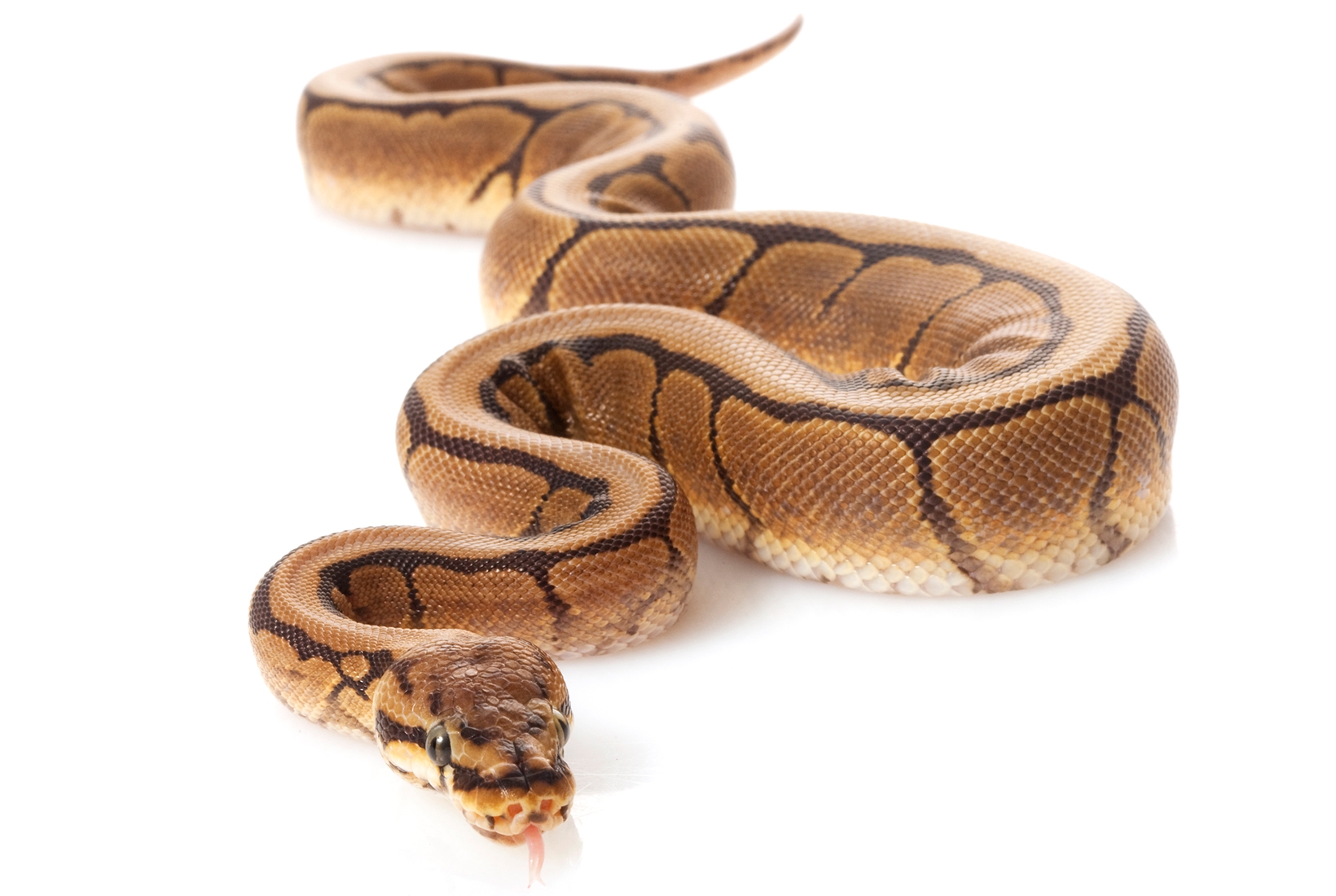This article is in
The Spectator’s November 2019 US edition. Subscribe here.
It’s summer in Wokeville, California, and the denizens congregate in their backyards, popping open craft beers and passing around kelp-flavored rice chips as the Beyond Meat burgers sizzle on the solar-powered grill. As Brad Paisley would say, it’s just another American Saturday night.
Er. Wait. Not sure I caught that right. Backyards, yes. Craft beer, yes. Rice chips, well, OK. But did you say Beyond Meat?
I am sorry to report this, dear residents of Everywhere Else, but yes, that’s what’s cooking in Wokeville these days. Beyond Meat hamburger patties, also known as Beyond Burgers, are gluten-free, soy-free, GMO-free, flesh-meat-free, beet-juice infused compounds of plant-based protein from peas, rice and mung beans.
Peas — I have no hesitation in proclaiming this — have long held an honorable place at the North American dinner table. The frozen pea in particular has watched generations of little Americans grow up. Likewise, rice is now as American as apple pie. The mung bean is a new one to me, but I am prepared to give it the benefit of the doubt.
What I question, however, is the need to mangle the pea, to reconstitute the rice, to de-mung (as it were) the bean. If you want pea protein, why not eat peas? If you want the benefits of rice or beans, why not throw together a stir-fry? Why lie to your poor, meat-craving body by presenting it with this coconut-oil-laced amalgamation of plant-sourced lipids and amino acids? Don’t tell me it’s because you like it, because I know (and you know) that nothing beats a piece of genuine grass-fed Black Angus beef. No: Beyond Meat is nothing to do with liking. It’s to do with virtue.
And not the kind of virtue that has you eschewing meat on Fridays or joining the Trappists. That kind of virtue considers meat excellent per se. The Beyond Meat attitude is that meat is actually bad in itself. It’s killing you, it’s killing the planet, it exhausts natural resources and it’s unkind to animals. So let us reject the demon meat and, having fortified ourselves with deconstructed vegetable matter, start the march to a Promised Land of non-dairy milk and legume-based simulated honey. (Real honey, in case you didn’t know, is a non-vegan exploitation of bees.)
The proper target audience for Beyond Meat is obviously the Beyond Human. Just as Beyond Meat labels itself The Future of Protein, Beyond Human must be The Future of Humanity. Who are these plant-fed übermenschen? Somehow what comes to mind is not a Greek god, equal parts James Bond, Michelangelo and St Christopher, but rather a pale, androgynous creature in knitted headgear, clutching a green tea and prattling in terror about the imminent death of the planet.
Beyond Humans’ obsession with health does not prevent them from frequenting fast-food joints. Instead of breakfasting at home on a bowl of granola or a carrot-and-dandelion smoothie as we did in the Dark Ages, they head to the nearest Dunkin’ Donuts — whose Manhattan stores were the first to Go Beyond — and order a Beyond Sausage Breakfast Sandwich.
This aberration was offered in Canada by Tim Hortons for a while, but was eventually discontinued in most provinces (it turns out only Ontario and B.C. were sufficiently enlightened to embrace The Future of Protein). Subway, too, has climbed aboard the gravy train with a Beyond Meatball Marinara sub. And KFC has run a test project on Beyond Fried Chicken Kentucky Fried Miracles (possibly known as miracles because science can’t account for their willful ingestion).
Beyond Meat can’t take all the credit for this beyond-the-box thinking, though. Other faux-meat manufacturers have brought offerings to the table — Impossible Foods, for instance, whose pièce de résistance is the Impossible Burger, and the rather sheepish-sounding Before the Butcher.
Is all this mockery a bit beyond the pale? I don’t think so. Because this is not simply a question of a few scientists in a lab seeing if they can mimic the molecular structure of meat. The faux-meat movement is part of a radical environmental lobby to push people away from eating animal-based foods, including eggs and dairy.
Who’s behind it? Greenpeace, for one. According to its Less Is More campaign, the demon meat is tearing down forests, polluting water, disrupting the climate and mistreating animals — talking points that sound remarkably similar to Beyond Meat’s self-assigned mission to solve ‘four growing issues attributed to livestock production: human health, climate change, constraints on natural resources and animal welfare’.
Interestingly, pressure is also being brought to bear on school cafeterias in Europe and North America to offer vegan options, and in some cases to enforce vegetarian and even vegan meals once or twice a week.
Don’t worry, though. Beyond Humans have complete confidence that everyone — even growing children — will easily adapt to a diet of processed plant matter. Mundane details such as potential physiological effects or the non-negligible environmental impact of increased crop production don’t trouble them. Are prophets to be impeded by such pettiness? For they are prophets, here to wean us off the fleshpots of Egypt and lead us into the Promised Land of The Future of Protein.
Goodbye, dear duck à l’orange. Au revoir, the rack of lamb to accompany Mediterranean vegetables and sauce vierge. Farewell, pan-roasted guinea fowl with truffles and leeks. Sayonara, beloved Wagyu, cooked medium-rare. Where we’re going, you can’t follow. The woke have spoken and ours is not to reason why; ours is but to do and die.
Indeed, one senses that the Beyond Human regards the ordinary human as a loathly carbuncle on the otherwise pristine face of the earth, constantly eating meat, having more than two children and failing — despite repeated instruction — to sort the recycling properly.
Pleasanter sorts (Spectator readers, for instance), while recognizing room for improvement, consider the human race uniquely and essentially worthwhile, capable of spiritual, cultural — and dare I say gastronomical — heights, to which the purely material cannot rise.
And like me, they might conclude that the pretentiousness of Beyond Meat and its cohorts, in attempting to redesign our diet and our future, is quite simply Beyond Belief.
This article is in The Spectator’s November 2019 US edition. Subscribe here.



